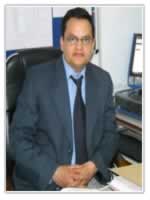Page 1 of 7
Institute Level
- Value Oriented Education System
- Application Oriented Teaching: To emphasize applied aspects by including several project in the courses.
- Exposure to Practical Field: Curriculum includes Practical Training, Work Experience Courses, and Major projects.
- Unique Curriculum: Includes the following compulsory core courses in addition to main-stream courses:
- Work Experience Courses: To impart practical training to develop skills and generate a spirit of self-reliance.
- Social Service: To engender a spirit of brotherhood of man and to facilitate the establishment of a casteless society (the students need to compulsorily attend a ten-day special outdoor NSS camp).
- Co-curricular Activities: Cultural & Literary activities, Games, and Sports for an all-round development of personality.
- Agricultural Operations: To promote dignity of labour, engender a pride for soiled hands, and kindle a concern for the environment.
- Inter-faculty Half-Courses: To further the cause of integrated education and to complement and support the major subjects.
- Comparative Study of Religion: To ingrain religious tolerance, humanism and secularism in a world of discord, fear and suspicion.
- Scientific Methodology, General Knowledge & Current Affairs: To nurture a scientific temper and get acquainted with contemporary developments.
- Agricultural Engineering: To acquaint students with contemporary agricultural tools and techniques keeping in view the country's primary agrarian moorings.
- Continuous Syllabus Up-gradation: Through annual Board(s) of Studies/Academic Council meetings to update the curriculum in line with emerging technologies. In addition, major curriculum revision workshops are held with External experts from premier institutes in the country, industry experts, alumni, and also involving internal subject experts.
- Interdisciplinary approach of Education: Through courses offered by various departments (e.g., Physics & Computer Science, Engineering, Mathematics, English, Commerce, Psychology, etc.).
- Infrastructure: Includes state-of-the-art equipment in all the laboratories and workshops, computing facilities, library and book -bank.
- Multiuse of Facilities: Through inter-faculty resource sharing.
- Semester-Cum-Continuous Evaluation System: To radically improve the learning process, promote regular evaluation and preparedness for examinations.
- Proctorial System: To ensure closer contact between students and teachers and to redress students' concerns through an existing Proctorial Board.
- Discipline: To cultivate genial manners and inculcate the habits of regularity and punctuality.
- Industry-Institute Partnership Cell: To forge meaningful bonds with industry through multilevel interaction for mutual benefit.
- DEI Alumni Placement Assistance Cell (DEIAPAC): A strong Alumni network to improve the level and quality of placements of the students.
- Faculty Training & Placement Cell: For facilitating training and industry-wide recruitment of students.
- Contact Hours (40 hours per week): For enhanced student-teacher interaction resulting in increased personalized attention.
- Use of Modern Teaching Practices: Through state-of-of-the-art instructional/teaching aides including LCD projectors, multimedia equipment and teaching material.
- Updating Teaching Faculty Knowledge: summer training courses, orientation and refresher programmes, national and international seminars/conferences, consultation with domain-knowledge experts, visits to premier academic institutes and internet resources.
- Affordable Quality Education: To impart high quality education at nominal expense (tuition fees, one of the lowest in the country).
- Prev
- Next >>

